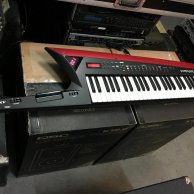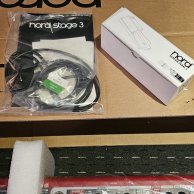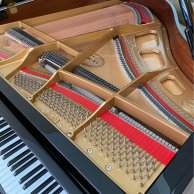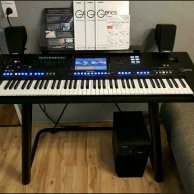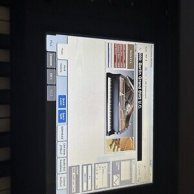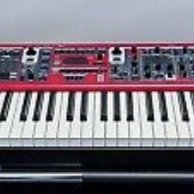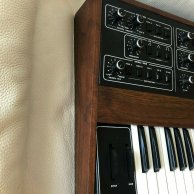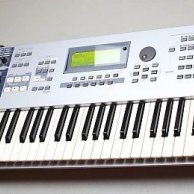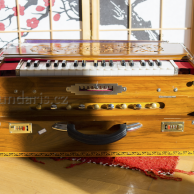6 Ways to Improve Your Songwriting and Composing
It doesn't matter if you are a classically trained musician, a rock guitar player, an EDM producer or anything in between: Creating new music can seem like a daunting task. The idea of creating something that no one has heard before sounds more like black magic rather than something doable, and it has been typically associated with prodigious minds and celestial muses. But let's be positive: every musician can create something new and unique with the right mindset. Once we understand the basics of how our mind works, the process of composing becomes clearer and less daunting, making it easier to get better results and making the process more enjoyable.
Here are 6 ways to take your creative skills to the next level, based on the experience of many professional musicians and on my own experience as a music composer:
1. Go back to your roots...
We all have some artists or songs that sparked our passion for music, and while some life experiences can fire our inspiration, the music we love is also great for that, if not better. What was that band or musician that motivated you to start playing an instrument or producing music? Who has been an inspiration for you? Which music has always given you goosebumps? Go back to them if you lose your spark, they are fuel for your inner fire!
2. ...and also listen to new music.
Contrary to what you might think, musical ideas don't come from nowhere: they are rather a mix of all the music we have heard in life. Imagine every piece of music like a remix of previously existing pieces of music, made by blending musical ideas taken from here and there. This is not the same as blatantly plagiarizing - composers mix influences to create something unique and different. If you want to create something that you've never created before, expand your influences by listening to music you've never heard before.
3.Try a different instrument.
Some people compose by just imagining the music in their head, others play around with their instrument until they come up with something interesting (what we call 'happy accidents'). If you are part of the second group, playing around with another instrument can lead to completely different ideas, even if you are not that good with that particular instrument. What we play with each instrument is defined by the physical limitations of the instrument, so with every instrument, you will tend to have different kinds of musical ideas.
The best recommendation here is to try piano since it's the most practical instrument for composing, due to the way it is played. If the piano is your main instrument, try something like a guitar - polyphonic instruments are usually better for composing.
4. Let your subconscious do the hard work.
Your conscious mind is a powerful tool, but your subconscious is even better. We are constantly using our subconscious part of the brain, even though we are not usually aware of what's happening there, "behind the scenes". The key to using the potential of our subconscious to create new music is simple: once you have been thinking for some time about a musical idea, simply STOP thinking about it. By ceasing to actively think about the music we are creating, we relegate that task to our subconscious, which will keep working on those ideas, but "behind the scenes", making it easier for the conscious mind when it gets back to work on it later.
When you try to compose again you will be surprised how much easier things come out!
5. "Reset" your mood by meditating.
I came up with the idea of using meditation as a tool for composing after meeting some people who meditate on a daily basis and realizing that the state of mind you can achieve by meditating is ideal for unleashing creativity. While meditating might sound like a boring spiritual practice that has nothing to do with your lifestyle, it is more simple and practical than it seems. The idea is to leave the mind in blank by meditating and then think about the feeling you want to create: since you start from a blank mind - empty of thoughts - it makes it very easy to get into the mood you want to communicate with your music.
To do that, simply sit down - it doesn't have to be on the floor with crossed legs, you can just sit on a chair - close your eyes, breath deeply and concentrate only on your own respiration for some minutes. Then think about the feeling you are trying to achieve and start composing. This is probably the quickest way to "get in the zone" and it's especially useful if you have to compose but you are not "in the mood" for the kind of music you want to create. Even though it seems simple, meditating is not easy if you've never tried it before, but like many other things, practice makes it easier and faster.
6.Give it some time.
Inspiration is usually like a train: it might start slowly but once it's at full speed it's almost unstoppable! If inspiration doesn't come when you want, give your brain some time to start the engines - try to compose, and if you're not satisfied, try again the next day. Keep doing it and you will eventually get into the zone.
Composing is mostly about mixing different influences to create something new, and our brains need time for that. Every musician's mind has the ability to compose something unique, but most people don't try for long enough to make it happen. Do not let the fear of "what if I'm not good enough" hold you back. Instead, start RIGHT NOW and sooner or later the "Eureka!" moments will start coming.
Have fun creating!






 Other blog items you might be interested in...
Other blog items you might be interested in...



